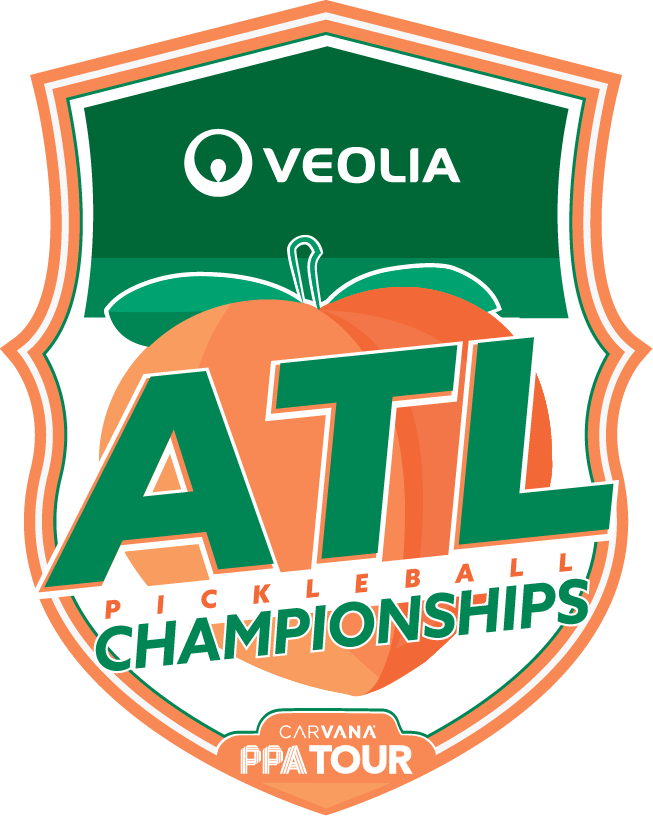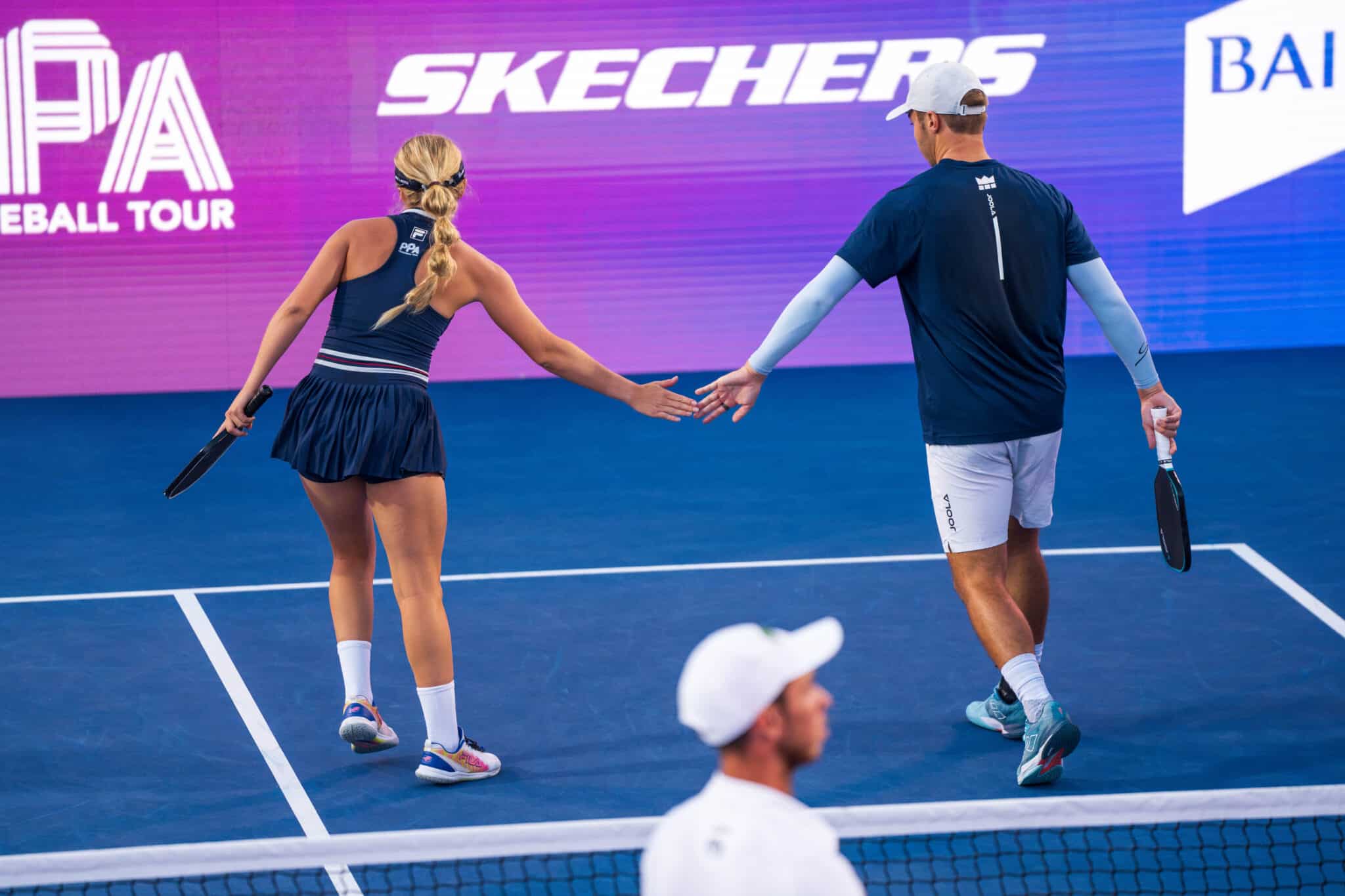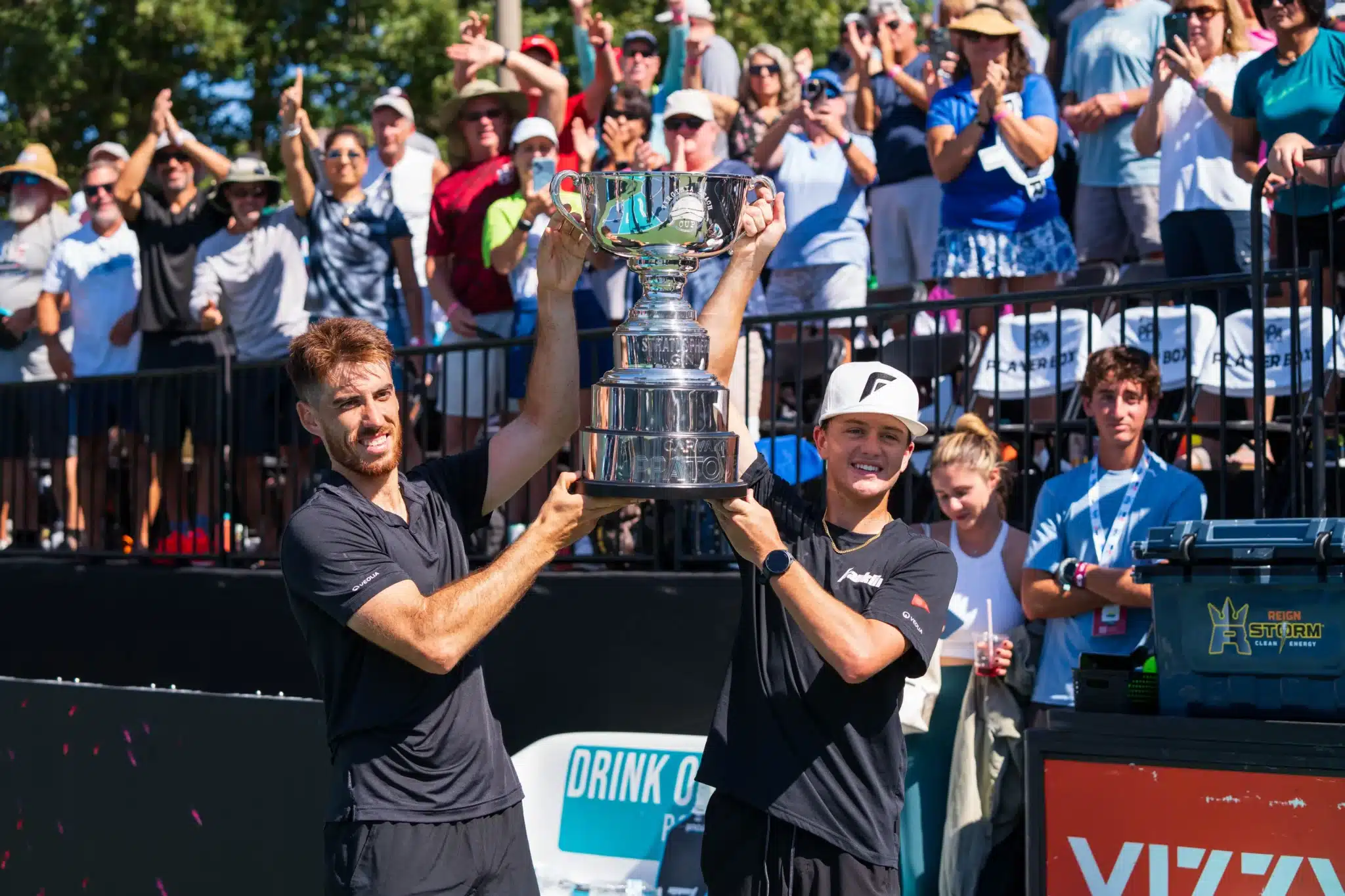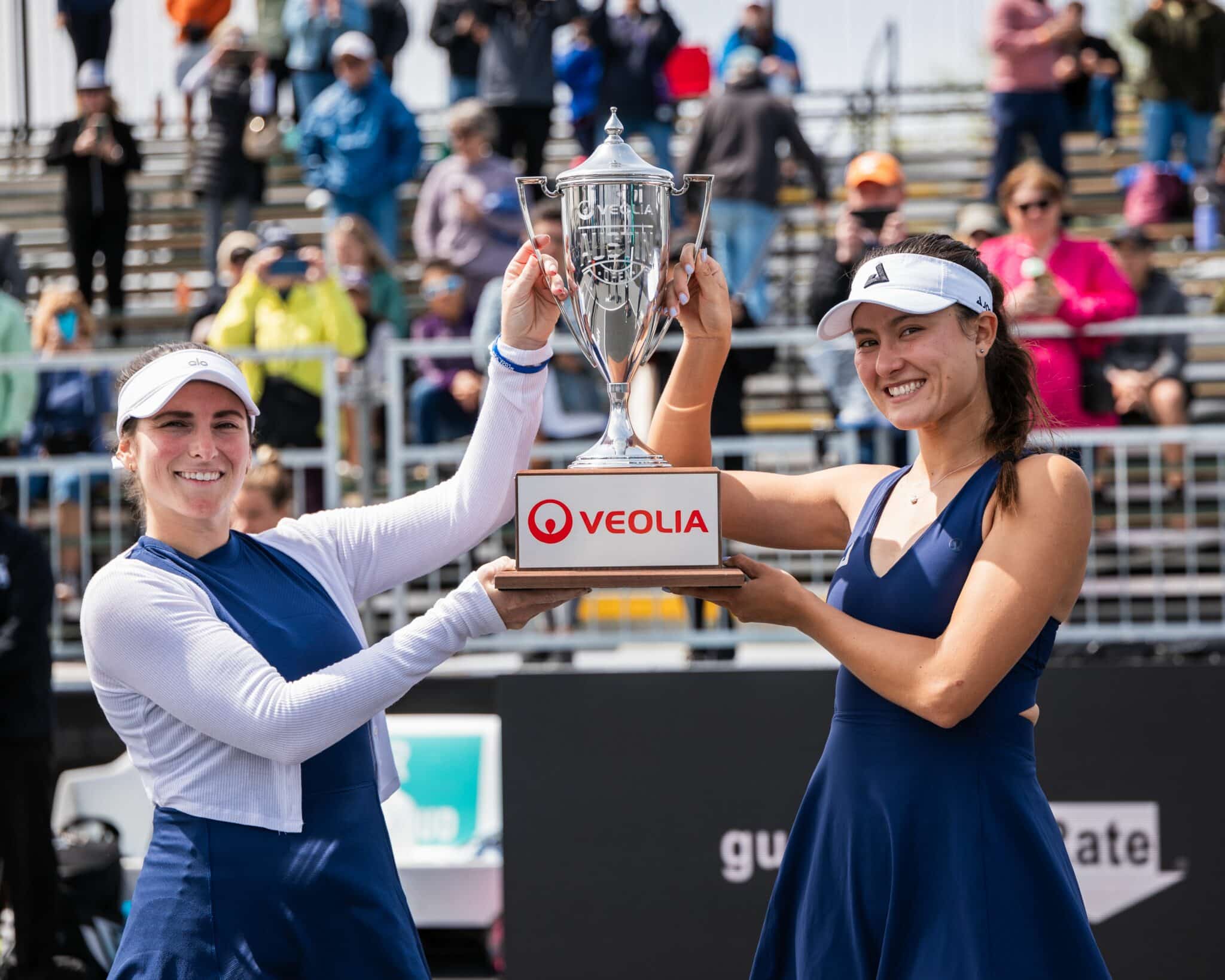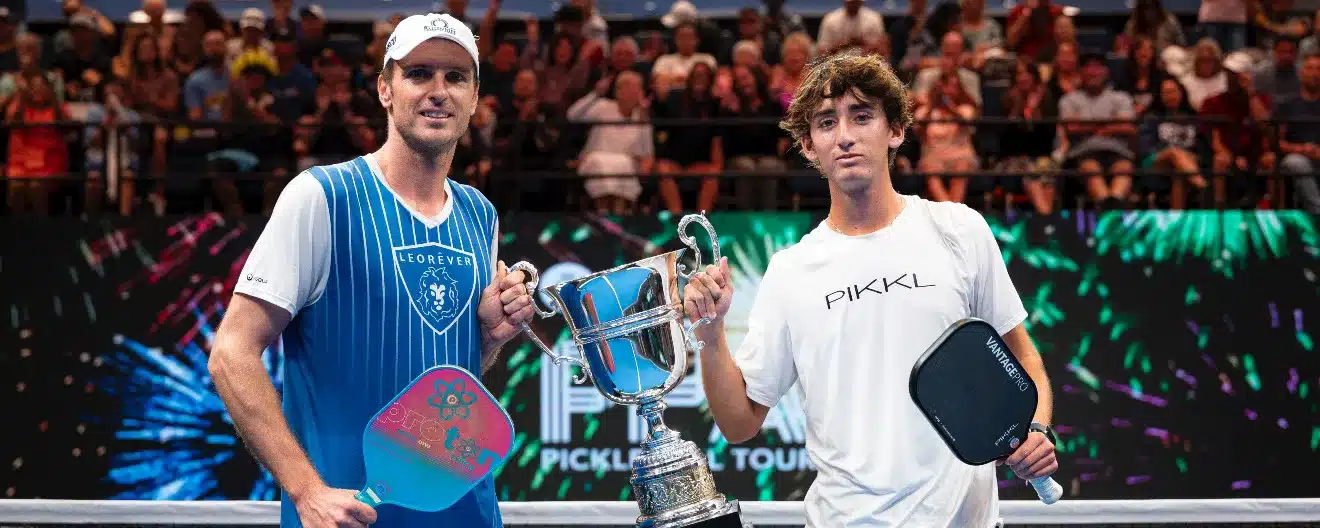School days and dinking ways
| October 25, 2023

We already sort of know there’s nothing too normal about Anna Leigh Waters.
When you’re the world’s best female pickleball player, have competed all over the country, and have enough trophies and medals to fill a house, there’s nothing standard about life or pickleball.
And certainly not school, either.
Waters is among several players on the PPA Tour who balance school, life, and being a pro. And that balance isn’t all that easy.
“Regular is not a word I use to describe anything that has to do with me and school,” Waters said. “Because I have to travel so much, I have to get ahead in school. This means, when I’m home I have to three times the amount of work that a regular student would have to do. And when I’m traveling, I do three times less than what a regular student would do.”
Waters is a high school senior who is home-schooled. That means she can certainly work at her own rate, but as she said, there’s a lot of catching up to do when she gets home. And with the regular travel and grind of the PPA Tour, plus extra events in Major League Pickleball, as well as all the other engagements Waters is involved with, it means an unbalanced schedule while trying to balance life.
This is not the typical high schooler. And Wyatt Stone wasn’t one, either. Stone, who just graduated last year, is a full-time pickleball player now. College will wait, but some of the things Stone learned while being a home-schooled high schooler aren’t what you’d expect.
“Some home-school programs are harder than traditional schools,” he said. “But when being home-schooled you have to really learn quickly to have some responsibility to get your work done without a teacher.”
Jorja Johnson, Waters, Hayden Patriquin, and Gabriel Tardio are still in high school. Collin Shick is in medical school. Dylan Frazier is in college. Ben Johns just finished an engineering degree last year. All of them are full-time players on the PPA Tour.
“It’s definitely harder than just regular school,” Tardio said. “But it’s also good because you don’t have set times to do work. You can do it any time you’re available.”
That freedom, the travel, and the experience of being around others who are in different age groups is significantly different than the traditional high schooler.
“I never have found it to be difficult socially because I was always around adults and kids my age playing sports,” Waters said. “I feel that because I was hanging around adults at a young age, my social interactions are beyond my years.”
Waters might only be 16, but she’s playing against adults on a weekly basis. She has to worry about school, winning, practicing, homework, and more. That kind of life experience is something you can’t get in any classroom.
“The hardest part about being a high schooler and pro athlete is having time to do both,” she said. “My days are completely full with school and training. One good thing about this is that I have become really good at time management and maximizing my days. I have been doing this for many years so it’s honestly just routine now.”

